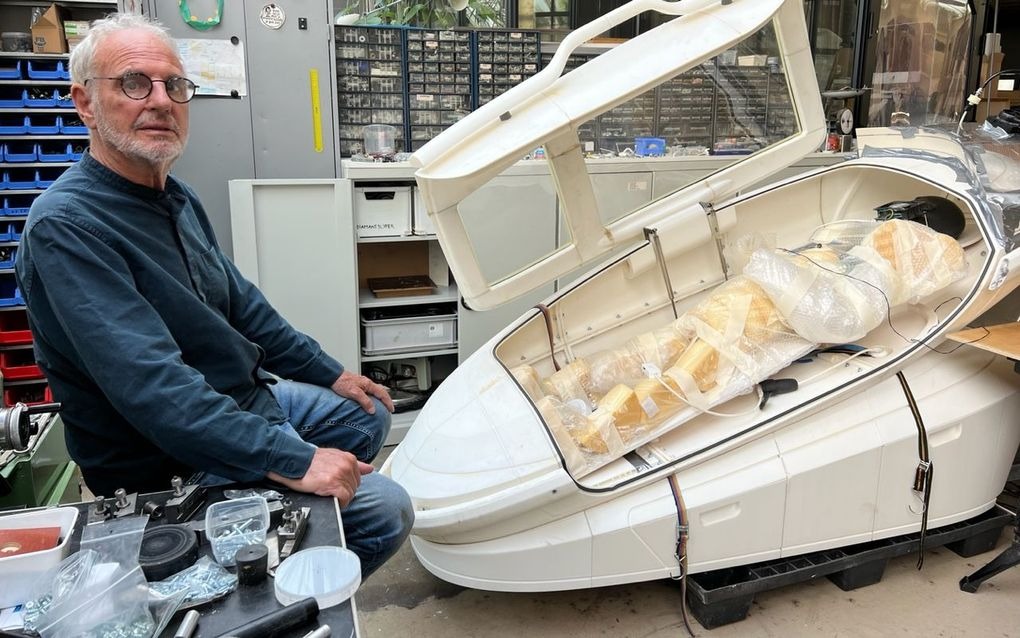Controversial 'Death Pod' Sparks Global Debate After First Use Leads to Multiple Arrests
The first-ever use of Exit International's Sarco capsule has resulted in legal action, reigniting discussions around assisted suicide laws and the ethical complexities of voluntary euthanasia.
10/6/20244 min read


Breaking News: Arrests Made as Controversial 'Death Pod' Finally Used After 10 Years of Development
The controversial 'Sarco' capsule, also known as the 'death pod', has finally been used for the first time after a decade of development by Exit International. This long-awaited event has sparked a legal storm, resulting in multiple arrests and global media coverage. In this blog, we'll break down what happened, the legal ramifications, and the ongoing debate surrounding assisted suicide.
What is the 'Sarco' Capsule?
For years, the Sarco capsule has been a subject of fascination and controversy. Developed by Exit International, this 3D-printed pod is designed for a person to voluntarily end their life by pressing a button that fills the capsule with nitrogen gas, leading to a peaceful and rapid death. The device was recently used by a 64-year-old woman in Switzerland, where assisted suicide is legal under specific conditions.
The Legal Backlash
Following the death of the woman, Swiss prosecutors were alerted by a law firm and immediately launched an investigation. Several individuals, including members of Exit International, were taken into custody. The Swiss district where the event occurred has opened a case, with prosecutors suspecting incitement and accessory to suicide. Despite assurances from Exit International’s founder, Dr. Philip Nitschke, that the pod's use was legal, Swiss authorities are questioning the legality based on the country's product safety and chemical laws.
Swiss Law on Assisted Suicide
Switzerland has long been a unique country when it comes to laws surrounding assisted suicide. While the country allows it under strict conditions—so long as the person takes their own life without external intervention—Swiss law doesn't explicitly legalize euthanasia, which requires healthcare providers to administer lethal injections. The ambiguity in Swiss law has made it a hotspot for international assisted suicides, but the Sarco capsule’s use raises new legal and ethical questions. Swiss lawmakers have expressed concerns, with some viewing the device as a potential legal loophole that could threaten public safety.
Exit International: A Controversial History
Exit International, founded in 1997 by Australian doctor Philip Nitschke, has been at the center of the global euthanasia debate for decades. Nitschke, often called "Dr. Death," has been both celebrated and criticized for his advocacy of voluntary assisted dying (VAD). Over the years, the organization has amassed a significant following and has faced numerous legal challenges across different countries, including raids and visa denials for its members. Exit International's outspoken approach has made them a target for governments concerned about the ethical implications of assisted suicide.
The Ethics and Risks of Assisted Suicide
One of the biggest concerns surrounding assisted suicide and devices like the Sarco capsule is the potential for abuse. How can we be certain that the person choosing to die is doing so freely and without external pressure? Governments argue that laws restricting euthanasia are designed to protect vulnerable individuals from being exploited. However, advocates believe that everyone should have the right to die with dignity, without interference from the state.
This case is still developing, and it remains to be seen how Swiss authorities will respond. Will the charges be dropped, or will this event set a legal precedent? Only time will tell.
Watch Our Full Video
Exit International’s Global Struggles
Exit International’s battle for legal recognition has extended beyond Switzerland. The group has faced similar resistance from countries like Australia, New Zealand, and the UK, where its members have been denied entry or had their homes raided. The group's more militant offshoot, Exit Action, formed in 2016, has added to the tension. This faction pushes for unrestricted adult access to euthanasia, even launching online clubs to provide members with euthanasia drugs.
Governments around the world argue that these actions pose a threat to public safety, but the group continues to advocate for what it believes is the right of all competent adults to choose how and when they die.
A Legal Precedent or a One-Off Case?
As the dust settles on this case, one question looms large: Will the arrests lead to long-term legal repercussions for Exit International and similar organizations, or will this be seen as an isolated incident? The Swiss government may use this case to tighten the already complex regulations surrounding assisted suicide, while supporters of the movement will likely see this as a violation of personal rights.
Conclusion
The use of the Sarco capsule marks a new chapter in the ongoing debate around assisted suicide and voluntary euthanasia. While the idea of a peaceful, controlled death appeals to some, it raises serious ethical, legal, and moral concerns for others. As we wait for further developments in this case, the larger discussion about individual rights, public safety, and the role of government in such deeply personal decisions continues.
Ready to Dive Deeper? Book a 1-Hour Virtual Consultation Today!





